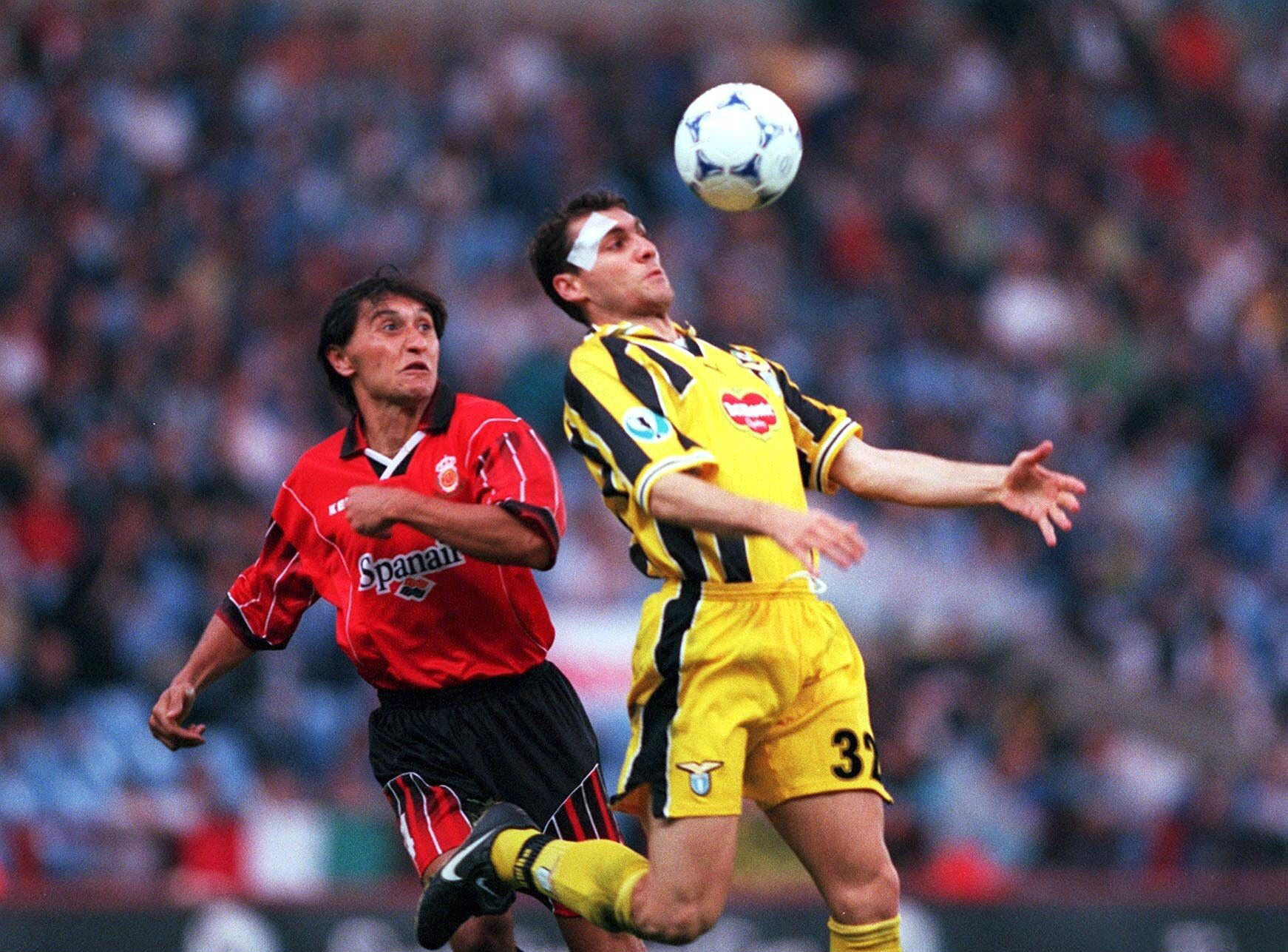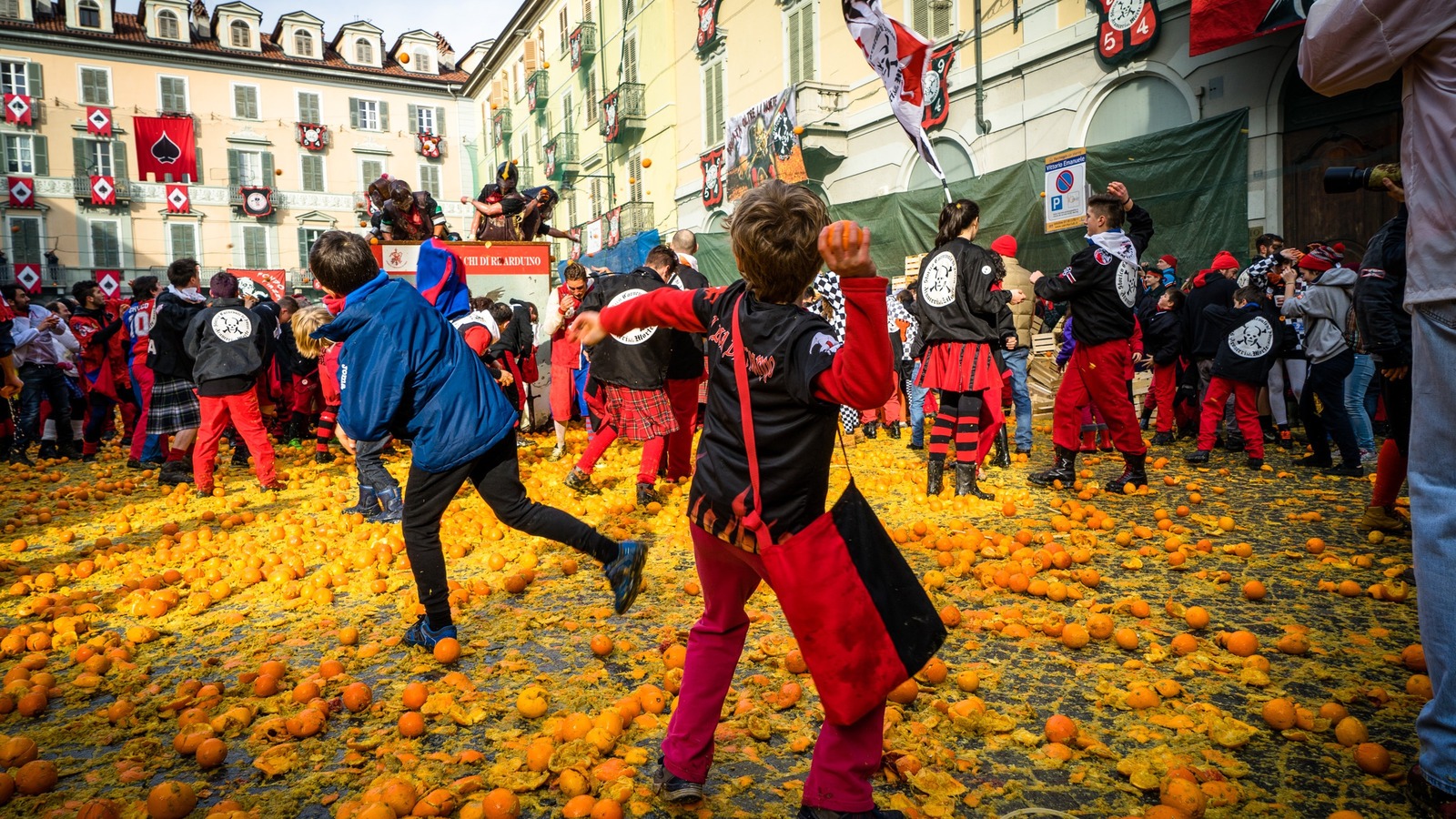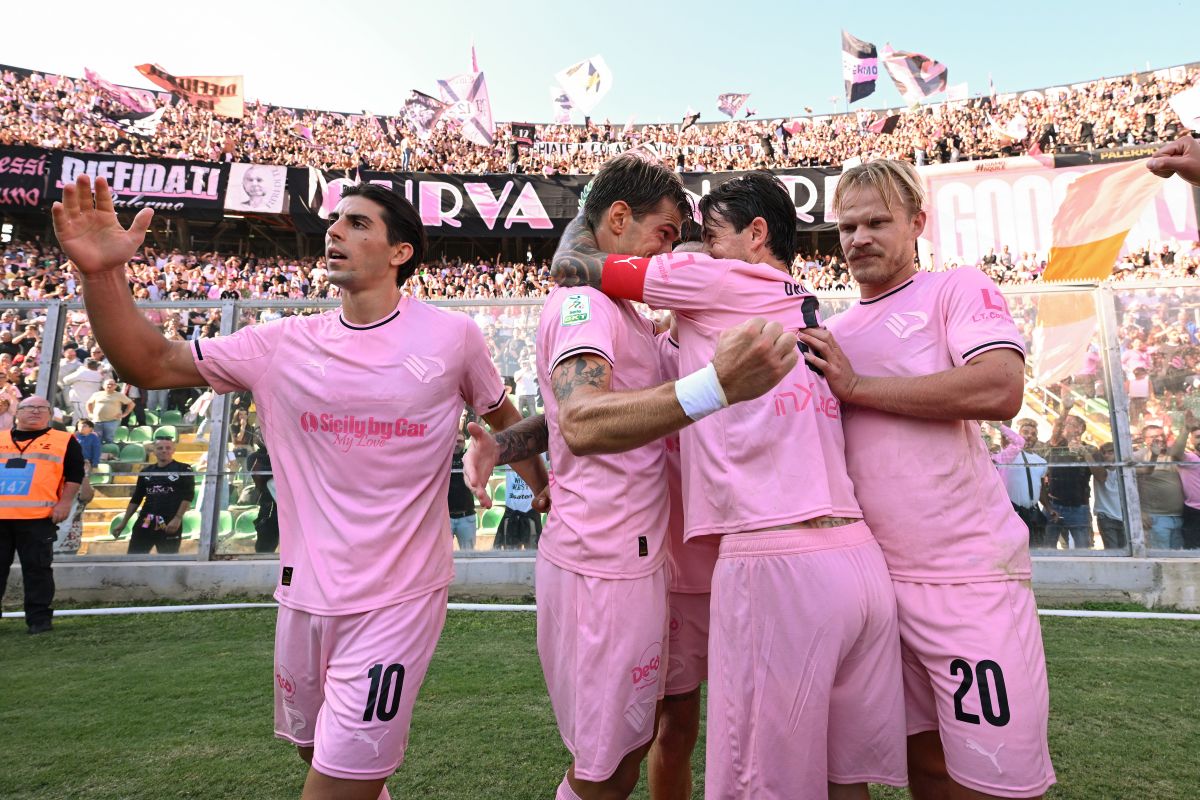
Injury, silverware and goals: Christian Vieri’s forgotten year at Lazio
By Emmet Gates
Most Serie A sides have been quiet in the 2024 summer transfer window. Inter Milan, AC Milan, Napoli and Atalanta have made deals that strengthen their respective sides without necessarily making flashy statements.
Juventus are in the process of undergoing a major revolution, with many players arriving and leaving as Thiago Motta continues to shape his team. The only other side to make a significant splash has been Roma, with the club bringing in midfielder Enzo Le Fee from Rennes, Matias Soule from Juventus and, most impressively, Ukrainian hitman Artem Dovbyk from La Liga.
Dovbyk seemed intent on signing for Atletico Madrid, however Roma stole a march to sign last season’s Pichichi winner from Girona for a fee believed to be around €38m. He becomes Roma’s fifth most-expensive signing in the club’s history, and it’s the first time since 1998 that Serie A signed the previous season’s top scorer in La Liga. The last player was Christian Vieri, when he left Atletico to sign for Lazio.
Vieri had only been in Spain for a single season, having signed from Juventus a year prior. The Italy international, by his own admission, had ‘exploded’ in his year in Turin and was slowly becoming the player who was considered one of the best strikers in the world for the next six years. “In the first half of the season [1996-97] I played and then didn’t play, but in the second half onwards I played every game and was getting better and scoring goals,” says Vieri. “It was all thanks to Juventus, because they brought me there and believed in me.”
Juventus were in the middle of a period of domestic and European domination, when they became the measuring stick for all sides, both domestic and further afield. They seemingly did it amid selling key players every single summer: Roberto Baggio in the summer of 1995; Fabrizio Ravanelli, Paulo Sousa and Gianluca Vialli a summer later; then in the summer of 1997 Alen Boksic and Vieri were also offloaded. Boksic went back to Lazio, while Vieri signed for Atletico.
“I had an amazing offer from Atletico that I just couldn’t say no to,” confesses Vieri.” It wasn’t easy to leave Juve but I went to a big club and won the Pichichi, scoring 24 goals in 24 league games.” Vieri’s memory wasn’t quite as sharp in remembering his total output for the season, believing he scored 29 goals in all competitions from 30 games (it was actually 32), yet on the pitch he dominated, with his outrageous goal against Greek side PAOK from the sideline in the Uefa Cup regularly going viral on social media.
Vieri’s reputation soared on the back of a tremendous showing at France ’98. Five goals against Chile, Austria, Cameroon and Norway after forming a solid partnership with Baggio elevated his standing in the game. With Atletico finishing seventh in La Liga in 1997-98, the club’s aspirations didn’t meet Vieri’s and it seemed only a matter of time before a return to Serie A happened.
Lazio offered around €25m to take Vieri back to Italy, and the striker reportedly felt a pang of guilt over the move, leaving the club after just one year and a Ferrari in Madrid, given to Vieri by club president Jesus Gil after the striker won a bet by scoring a hat-trick.
Lazio had won the 1998 Coppa Italia, their first bit of silverware since winning the Scudetto in 1974, and Sven-Goran Eriksson and Sergio Cragnotti were intent on putting together a side capable of winning the Scudetto. Along with Vieri, in came Marcelo Salas from River Plate, Sinisa Mihajlovic, Sergio Conceciao, Dejan Stankovic and Ivan de la Pena in a major summer of activity by Cragnotti, a man who by that point was unafraid to spend Italian lira, even if it wasn’t his own.
In truth, Vieri’s season at Lazio tends to get overlooked when reflecting on his career. Half of this is due to the relative shortness of it (a common theme in Vieri’s career up to that point), staying a single year before moving on. The other half is that Vieri was injured for a large chunk of it, playing all but two games in the opening half of the campaign. Vieri made his league debut against Piacenza and played in the next game, a 0-0 draw against Bari, but tore ligaments going into the third game of the season against Perugia and didn’t appear again until the beginning of 1999.
When Vieri did return to action against Bologna in January, Lazio had won a mere six league games and were behind Fiorentina at the top of the table. Vieri had yet to score for his new side and the pressure was on to deliver. He duly obliged, scoring the only goal in a 1-0 win. This kick-started Lazio’s season, with six consecutive wins and Vieri netting five more goals through to the middle of February. A draw with Perugia ended the run, but Eriksson’s side picked up again and went on another run, winning four from their next six. Vieri’s form had catapulted Lazio towards the top of the table as Fiorentina crumbled in the wake of Gabriel Batistuta’s injury and Edmundo sauntering off to the Rio carnival.
Some of Vieri’s goals were textbook: thumping headers against Bologna, Sampdoria and Bari; glancing ones against Inter and Udinese while scoring left-footed piledrivers against Fiorentina and Bologna. His partnership with Salas, in which the two scored 27 league goals between them, dovetailed in synch: Salas carried the goalscoring burden when Vieri was injured in the first half of the season, but Vieri then took over the baton when Salas’ form dipped in the spring.
Embed from Getty ImagesThe defeats to Juventus and Roma on consecutive weekends ultimately proved to be the killer blow for Eriksson’s side. Both games ended in 3-1 defeats, and from a defence that would prove to be the best in the division that season, sloppiness and petulance cost dearly. Against Roma in the derby, both Alessandro Nesta and Mihajlovic were sent off, meaning both missed the following week’s game against Juve. Fernando Couto and Paul Okon in defence were hardly going to scare Pippo Inzaghi, Nicola Amoruso and young Thierry Henry. Henry scored twice either side of an Amoruso goal, and this was the beginning of the end for Lazio Scudetto hopes.
Eriksson had been slowly changing the mentality of the club over the preceding 18 months, but it wasn’t changing fast enough. Winning the Coppa Italia and reaching the 1998 Uefa Cup final were promising steps, but there was still a fragility about Lazio that was still another year away from maturing. Milan was to win the title on the final of the season with an away win to Perugia, while Lazio needed a favour from the Umbrian side and to beat Parma in Rome. Lazio duly did their part, with Salas scoring twice to take his personal tally to 15 league goals, but Milan won 2-1 to seal one of the most unlikely title wins in their recent history.
Four days prior Lazio secured the last ever edition of the Cup Winners’ Cup. Hosted at Villa Park, Real Mallorca provided strong opposition but were defeated 2-1 with Vieri scoring perhaps the quintessential Vieri goal: heading Giuseppe Pancaro’s deep cross from just inside the penalty area high and over Mallorca goalkeeper Carlos Roa and into the top corner. It was a goal befitting the last ever final of a much-missed competition.
Vieri’s lone season at Lazio produced 14 goals from 28 games in all competitions, but as had been the pattern of his career up to that point, he wasn’t long for a world in Biancocelesti. Vieri didn’t agitate for a move, but when Massimo Moratti came calling to bring Vieri to Inter, with the promise of working alongside Marcello Lippi and playing with Ronaldo and Baggio, he couldn’t resist. Inter paid a world-record £32m to bring him to Milan, and Vieri has long admitted the only reason he left the Eternal City was to play with Ronaldo.
Lazio would win the league the following season, with Cragnotti using the money generated from the sale of Vieri to sign Juan Sebastian Veron, Diego Simeone and Nestor Sensini to good effect. Vieri would never win another league title again in his career and, aside from a lone Coppa Italia title win for Inter in 2005, the Cup Winners’ Cup final was the last major piece of silverware of his career.
Vieri left Lazio with a big ‘what if’ hanging over him. Roma will be hoping Dobvyk doesn’t do the same.
Related Articles
Related Articles
Football rivalries, world-class sport, surreal carnivals, and a tradition you won’t find anywhere else. Five events to catch in February.
In the latest edition of My Town, My Team, Napoli fan Alex told us why everybody should visit Naples at least once.
Sampdoria against Palermo at the Stadio Luigi Ferraris is just one of the standout matches to be shown live on Destination Calcio TV.




